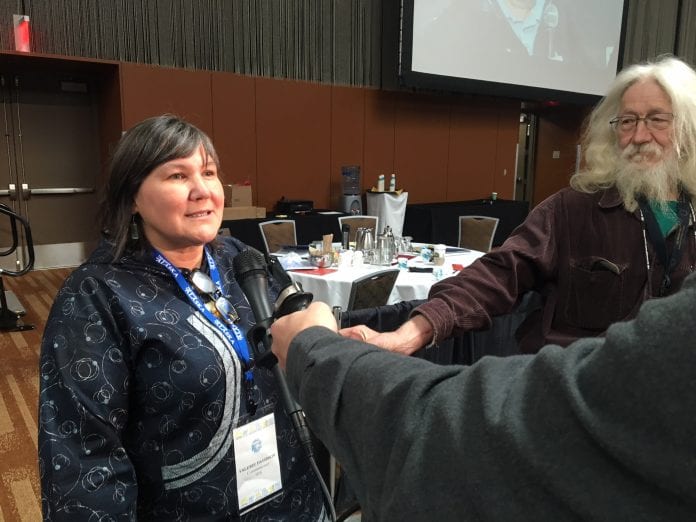
Tribal co-signers say their efforts to negotiate with the state of Alaska, as called for in the Alaska Tribal Child Welfare Compact, have so far failed because the state presented them with unreasonable and unworkable ultimatums.
These ultimatums came with little to no explanation and placed such enormous financial burdens on tribal co-signers that the state’s new requirements seemed designed to make the negotiations fail, said Erin Dougherty Lynch, an attorney with the Native American Rights Fund who chairs the tribal co-signers legal team.
Tribal co-signers are extremely disappointed at the failure of last week’s negotiations and have requested a meeting with Gov. Mike Dunleavy to gauge the governor’s commitment to the Alaska Tribal Child Welfare Compact, and, more broadly, to work with Alaska’s tribes to address the state’s failed child welfare system, Lynch said May 21, in response to questions from The Cordova Times.
Efforts to reach the state’s two negotiators regarding the negotiations have not elicited a response to date.
Lynch said that the state Office of Children’s Services has profound staffing and funding shortages that have led to a complete absence of child welfare services in many communities, and because of these shortages OCS has, for years, relied on tribes to do the state’s work in rural Alaska, through informal agreements and grants, and now through the compact.
“If tribes are not able to help OCS fill its gaps, there will be nobody to take care of children in need,” Lynch said. “Tribes have proven they are far more successful and effective at serving their own communities than the state has ever been. The goal of the compact is to allow tribes and the state to become true partners, and allow tribes access to the full complement of resources they need to better protect Alaska’s children, and therefore these latest developments and the state’s ‘take it or leave it’ approach are deeply concerning.”
Co-lead negotiators for the tribal co-signers are Francine Eddy Jones, Central Council of the Tlingit and Haida Indian Tribes of Alaska; Lola Stepetin, Nome Eskimo Community; and Lucille D. “Lu” Johnson from Bristol Bay Native Association.
“It is extremely disappointing and concerning that the state walked away from the table today,” Jones said, in a statement issued May 17. “For two years, tribes have spent hundreds of hours with the state developing a path forward to solve the statewide child welfare crisis. The tribes were at the table in good faith, and fear that Alaska’s children will be worse off than when we started,” she said.
The Alaska Federation of Natives also expressed disappointment in the breakdown in negotiations and urged the direct attention of the governor to the issue.
“The failure of this effort is a failure of leadership,” said AFN President Julie Kitka. “AFN urges the governor to get involved personally.”













